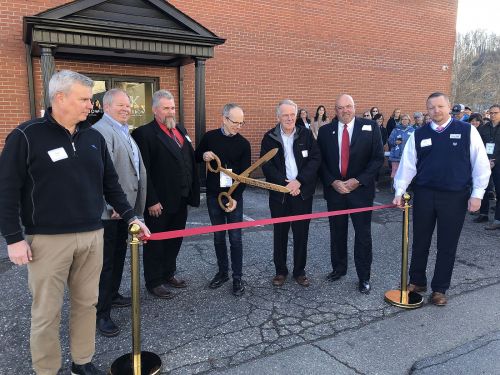OLD FORT, N.C. (BRAIN) — A year ago, Kitsbow Cycling Apparel committed to a goal of eventually manufacturing all clothes domestically. To help achieve that, Kitsbow relocated from Petaluma, California, to Old Fort in December.
Today, those decisions look wiser when factoring in the hardships supply-chain delays will have on the industry because of COVID-19.
"As you might imagine, during this pandemic, this choice made more than a year ago looks pretty smart," said CEO David Billstrom. "We are still making product; we're still selling it (online), and we're still shipping every day. We're 110% in business."
With the new factory and lean manufacturing model, Kitsbow intends to make 95% of its apparel domestically in two years. Kitsbow's decision was all about eliminating outsourcing, said Billstrom, who added domestic manufacturing enables online sales to be an advantage "rather than a necessary evil, as it is for many brick-and-mortar retailers."
"In other words, we could closely couple the sales transaction with the making, and then shipping, of the customer's choice," he said.
Kitsbow's cash-flow requirements also will be lower because they won't be buying finished goods in batch quantities of 300 to 3,000 and won't be sending wire transfers to Asia with deposit money months or quarters in advance of receiving products.
"We could not only ensure high quality, but make changes to products: new colors, new features, new sizes whenever we wanted to, on our own terms," Billstrom said.
Since the spread of the virus, Billstrom said the company has increased raw material inventory (fabric, zippers, elastic snaps) to keep production consistent. Employees have been reminded about practicing personal hygiene, and executive air travel has been restricted. Employees are asked to inform the company if they are planning personal air travel.
"The moment anyone is not feeling well, we ask them to stay home so that they don't infect the rest of their work family," Billstrom said. "And we're eager to get testing kits as soon as possible so that we can continue to verify that our team is safe and not carrying the virus to others."
A week ago, Billstrom said Kitsbow began cancelling attendance at events and gatherings that bring people in close proximity. Other than that, it's business as usual, thanks to those bold decisions a year ago.
"When our board of directors supported the decision to relocate from California, and to make a large investment in capital equipment (sewing machines) and training (of sewing operators), we did the analysis and made the decision independent of the already costly tariffs for imported goods. We didn't anticipate a pandemic," Billstrom said.
"We made this commitment on the basis of the fundamentals: that we could make premium clothes in America and sell them online in a made-to-order methodology. Since we made the decisions, tariffs got worse for us in late 2019, and, obviously, the last two months have been catastrophic for supply chains. But if both of those challenges went away completely next month, we would still have a huge strategic advantage in designing, making, and shipping our own product. Made to order is the future, at least for a big chunk of premium apparel."




